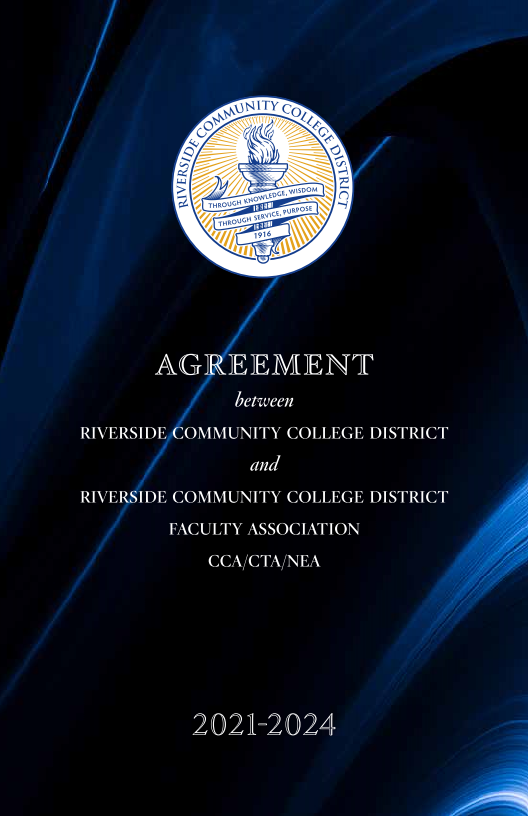FLEX Requirements
AGREEMENT BETWEEN RCCD AND RCCDFA/CCA/CTA/NEA

Article X, page 27, Section M
M. Professional Development (FLEX)
As stated in Article IX.D, unless otherwise agreed upon, faculty will complete 24 hours per academic year of professional development (FLEX). The staff development days may be taken at any time during the year (July 1 through June 30) when not in conflict with contractual obligations. Eight (8) hours of these 24 hours shall be dedicated to equityrelated training and education for the improvement of instruction. Faculty will submit documentation of completion of annual FLEX hours. Guidance and definitions of training/ education in equity and social justice issues shall be recommended through collaboration among Faculty Development Committees, as standing committees of the Academic Senate, and the District Compliance Officer and Title IX Coordinator.
Equity Statement and Criteria
Equity Definition
Educational equity means that each person receives what they need to develop to their full academic and social potential.
A commitment to equity means gaining an understanding of the intersectionality of social identities and the multiple axes of oppression that have caused, and are causing, people from different groups to be disproportionally impacted.
Working towards equity means:
- Removing the predictability of success and failure that currently correlates with any social or cultural factor.
- Identifying and dismantling inequitable practices, examining biases, and creating inclusive and just conditions for all.
- Honoring and cultivating the gifts, talents and interests that each human possesses. (Adapted from National Equity Project)
Equity and Social Justice Professional Development Criteria
Contributes to success of disproportionally impacted students in the colleges’ faculty leadership and board-approved Student Equity Plan and includes:
- Trainings, conferences, and courses from vetted organizations such as CORA and USC Race and Equity Center.
- Trainings, conferences, and courses from other appropriate groups or organizations approved by respective Faculty Professional Development Committees (in consultation with applicable committees, i.e., Student Equity) with the goal of improving instruction for equitable student success
- Any college/district-sponsored training, speaker, consultant brought to discuss/consult facilitate on equity-mindedness, cultural proficiency, and social justice.
- Communities of practice, trainings, and facilitated discussion by experts and/or RCCD employees/equity leaders who have completed a relevant researched-based course or training.